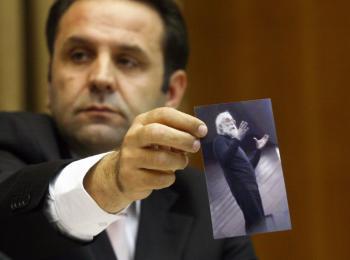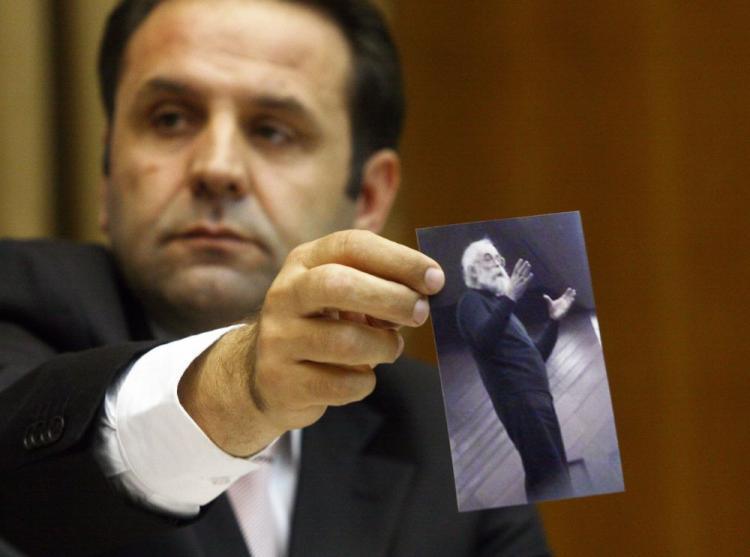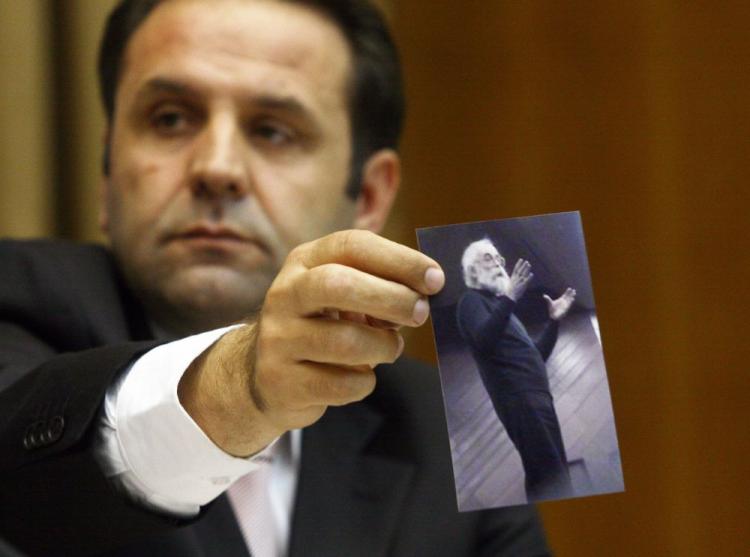Serbian War Criminal Investigator Steps Down
Serbia’s labor minister, Rasim Ljajic, resigned Dec. 29 as the coordinator of the Action Team.

Serbian Minister Rasim Ljajic holds a photo of war-crimes suspect Radovan Karadzic during a press conference in Belgrade on July 22, 2008. On Dec. 29, Ljajic stepped down as the coordinator of the Action Team coordinating with the International Criminal Tribunal for Former Yugoslavia over failing to capture a key war-criminal suspect. Goran Sivacki/AFP/Getty Images
|Updated:






